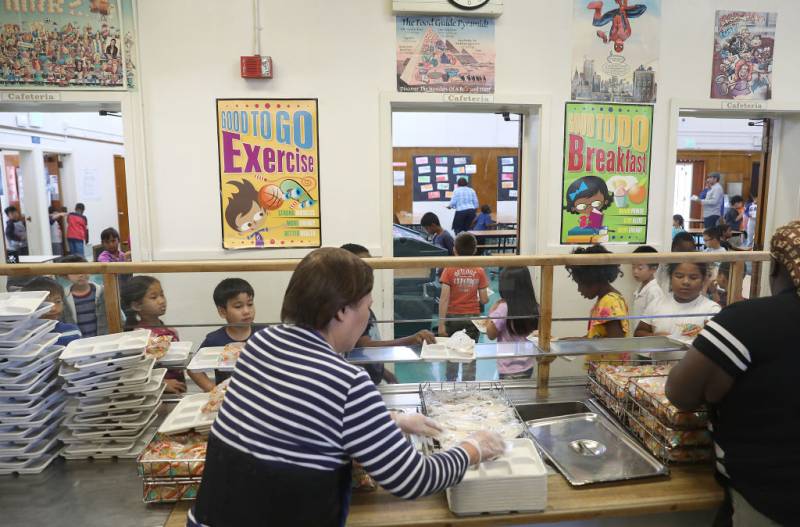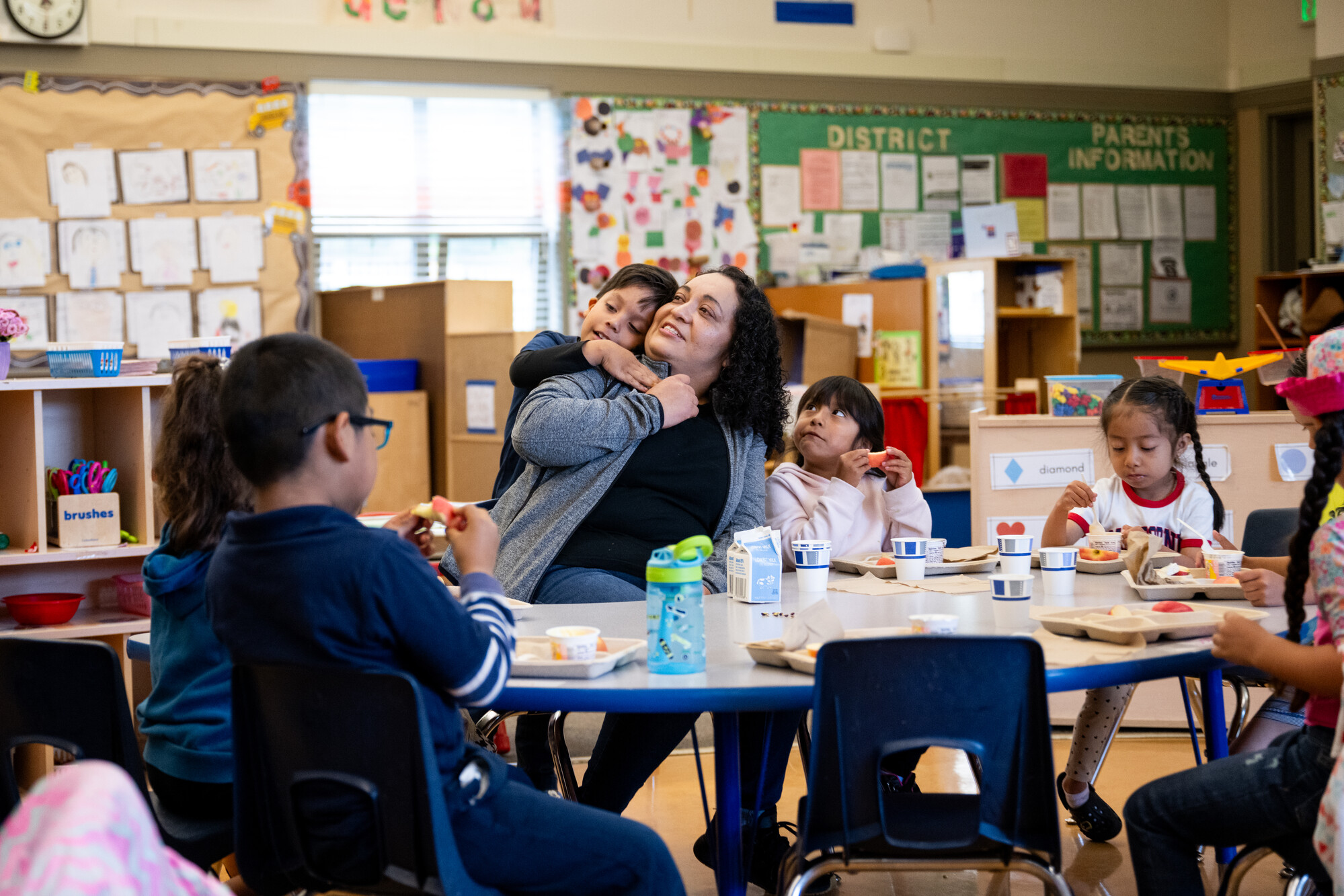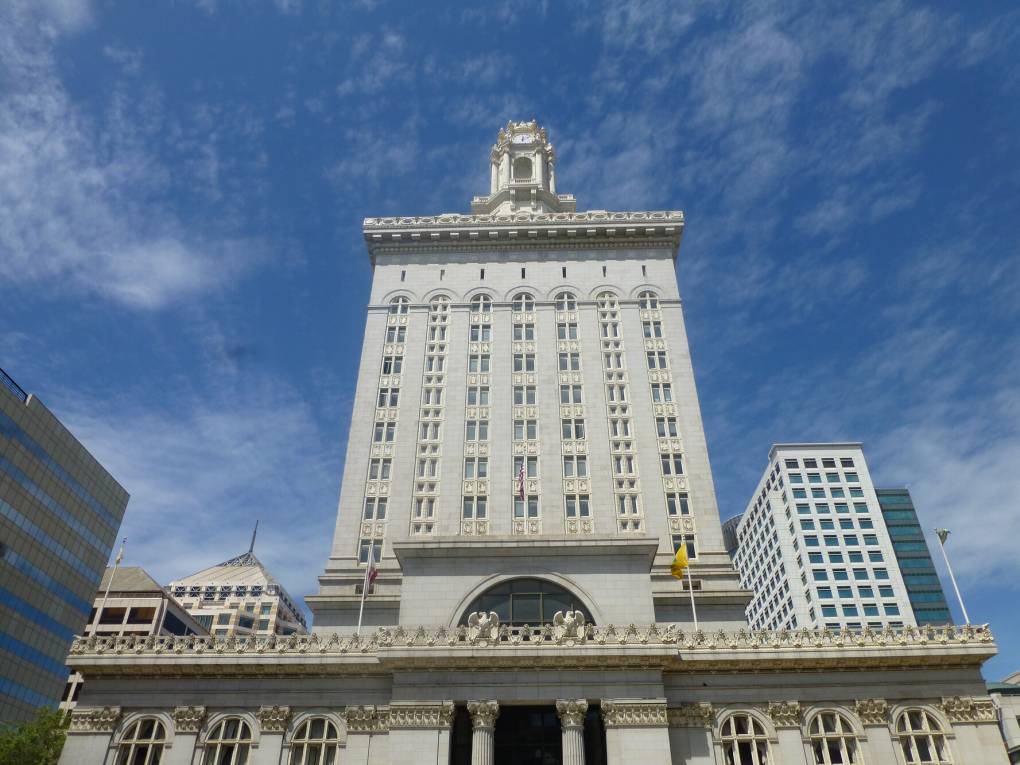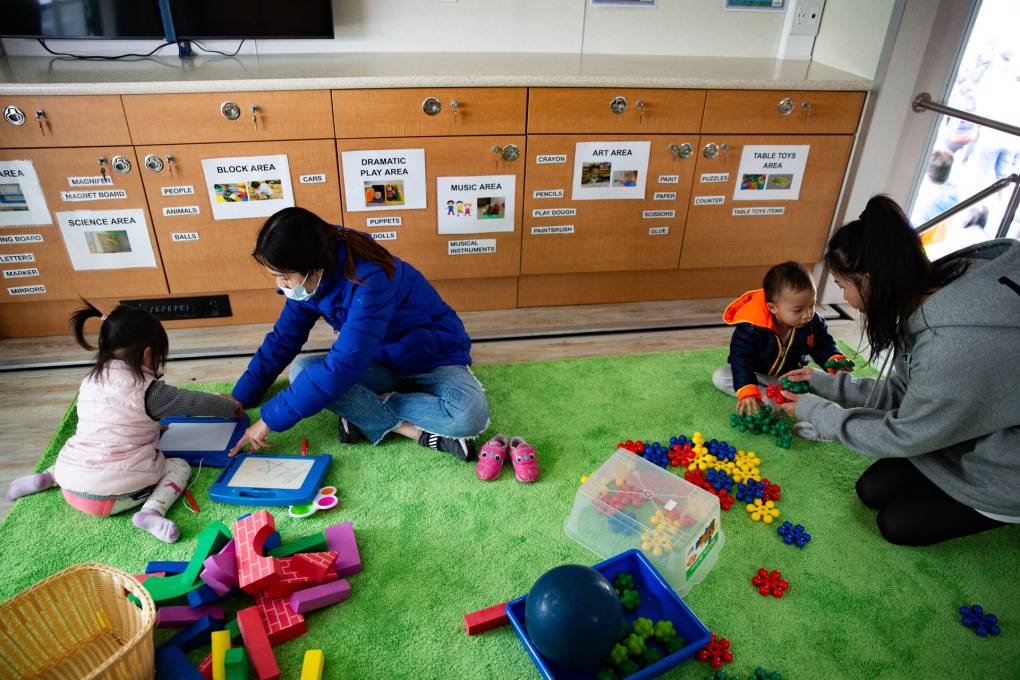A program that has long served free meals to thousands of Oakland kids over the summer and was slated to be canceled this year amid the city’s financial woes is back on track thanks to a public-private partnership, city officials said this week.
The program, which is funded in part by the U.S. Department of Agriculture, is now expected to once again deliver daily lunches and snacks to roughly 45 sites throughout the city, including many libraries, recreation centers, nonprofits and churches. Food service is set to begin in late May, immediately after the end of Oakland’s school year, and continue into the second week of August.
“The City intends to maintain the Youth Summer Lunch Program using a combination of one-time fund balance and philanthropic contributions,” the mayor’s office wrote in its proposed budget, which was publicly released on Monday. Although city officials have not yet provided specific details about the new funding arrangement, KQED has learned that the East Bay Community Foundation is one of the main philanthropic groups involved in keeping the program running.




